Becoming a ghost: A memoir on motherhood
For many women, pregnancy means losing their identity to the life growing inside of them. Victoria Richards reflects on how writing let her escape from midnight feeds and nappies
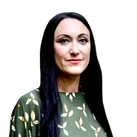
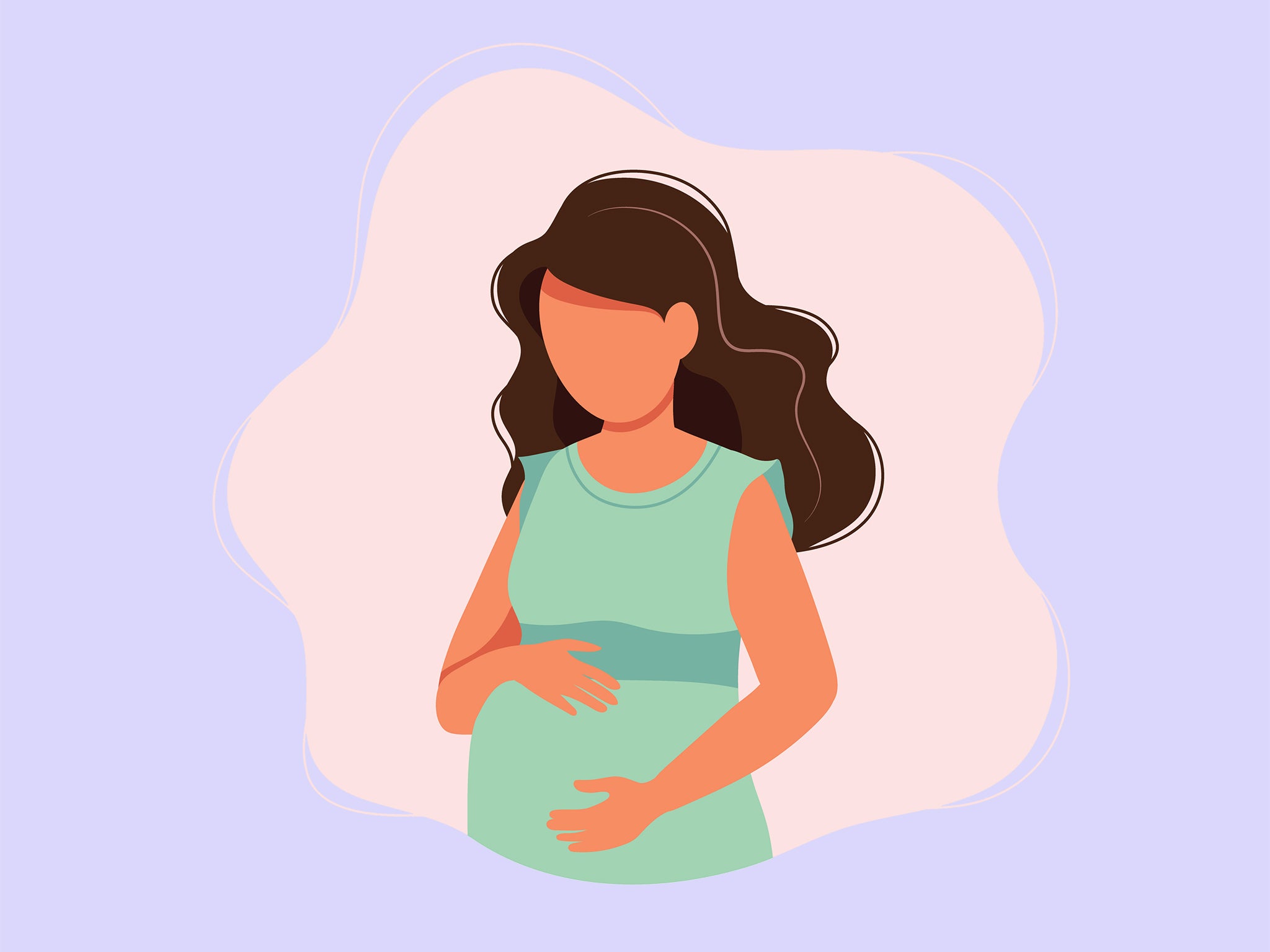
They’re all around us: the ghosts of women. Thronging in coffee shops; exhausted, caffeine-desperate. Sobbing silently as they push buggies across the street. Sitting on a park bench, snatching a moment of near-sleep, heads tilted upwards like they’ve found God in the empty sky. Smiling, sighing, swaying, rocking. Repeat.
They are the mothers. The lost ones. Hybrid, half-beings who exist in the witching hour between midnight and three. While the world slumbers, they are its rulers. Their power vanishes when daylight begins.
Once women split in two, they become gently rounded whispers of milk and maternity. Removed from work, from responsibility, from heavy lifting; they’re not supposed to be “seen”, not really. They are elysian, beatified. Womanhood as they knew it, entirely erased – and so with it all sense of sexuality, individualism and power.
“I feel like a vessel,” one pregnant friend tells me. “Empty in every way other than on the inside.” Another confides she often feels “jealous”. “I feel guilty for admitting it,” she whispers. “But sometimes I envy people who don’t have kids.”
Mothers, despite being revered – seemingly protected – are kept under strict controls: they’re simply not allowed to be anything but content with their lot. To be angry with the loss of self and the struggle for identity is to be a monster; a skewed line in the patriarchal narrative that upholds the idea of “family” at all costs. Mothers are the sacrificial lambs of society.
--
It was a heady, hot summer, the summer I “fell” pregnant at 29. Younger than my mother, old enough to be described as a “mature first-time mum” by medical professionals in blue uniforms, metal watches ticking in their pockets like tiny, beating hearts.
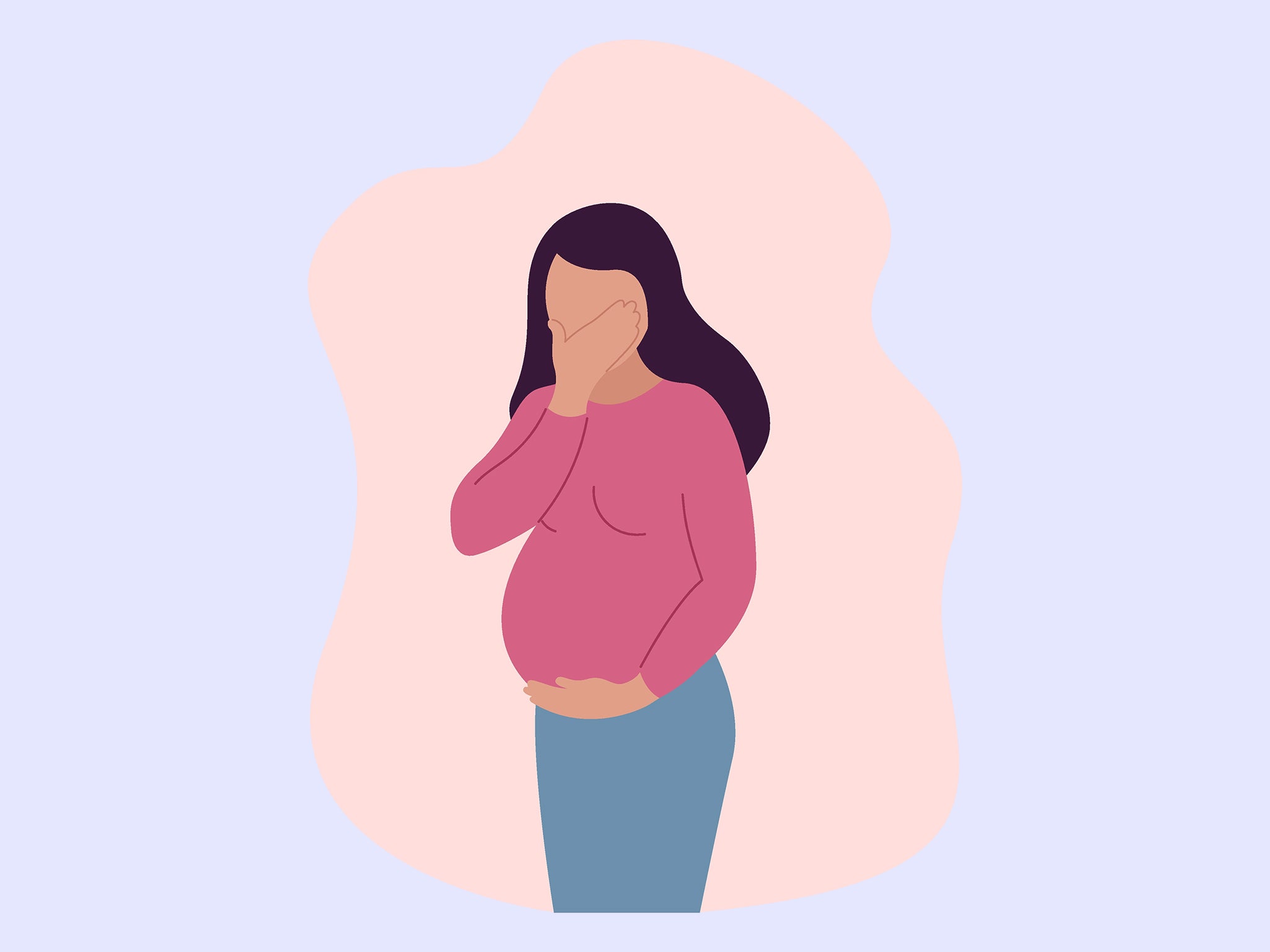
My body was no longer mine. “Pre-conception”, “pregnancy” and “new mum” multivitamins; huge, grainy, bitter slabs that stuck in my throat as I tried to swallow. They made me sick to my stomach at a time when the only thing I could think about was feeling sick to my stomach. Huge, rolling waves of nausea sent me reeling from the moment I woke up, dressed, dragged myself on the train to work, to the time I went to bed in the evening.
A bone-aching tiredness set in. The thought of taking the stairs was impossible. I could barely make conversation. When my stomach was empty, the sickness was fierce; obliterating everything I’d previously held dear: giddy reunions with friends, lazy Sunday afternoons, time spent with family, a glass of red wine, good food, work.
I’d lived to work. Loved the chaotic surprise of freelance journalism, of careering from day shift to night shift, from tabloid newspaper to broadsheet to online, never knowing where I might find myself from one day to the next.
Downing Street, Crown Court, a placard-driven protest, a fire in a block of flats in South London: thick, black smoke billowing from the windows. Interviews on the red carpet at a premiere. A Bafta after-party at the Natural History Museum: singing “Chitty Chitty Bang Bang” with celebrities at 2am around a piano, trying to make off with a Bafta-stamped goody-bag. The skeletal spectre of Dippy the Diplodocus ever-present, surrounded by Magnums of Champagne.
When I became a mother, I became part of a tribe, yet one in which I felt utterly and unalterably alone. I didn’t know it at the time – didn’t see the fine thread unravelling behind me
But with new life spawning secretly inside me, I struggled to muster up the enthusiasm.
And then, in the summer of 2011, the London Riots hit. I remember the way I “broke the news” on social media of my impending status as mother, by writing: “Fed up of riots, rampages, rank and file disappointment? Here’s some good news: we’re bringing a baby into this crazy world!” And it was, truly, a crazy world – at least from my vantage point in London. One newly decorated with burnt-out cars, glass shards glittering on the street. Arson. The scent of smoke hanging in the air. More than 14,000 angry bodies marched across three days. Neighbourhoods damaged in more ways than one. Shame shared by every one of us.
For Londoners, that summer brought with it an uneasy sense of rage and impotence. Frustration that things were not right, that things had not been right for a long, long time. It felt like we were on the cusp of something seismic, a flashpoint which began with the fatal shooting of a 29-year-old man by police. And if change was too much to hope for, then upheaval, we hoped, might be enough. We dreamed that once the anger passed, and so with it the hysterical, high-pitched commentary misconstruing what had happened in the wake of Mark Duggan’s death as “mindless criminality”, what would be left might prove the catalyst for newfound commitment to justice. Alas, this was not to be.
They were taking place where I lived, so there was a request to see if I could head to the scene. Only I hadn’t told my then-bosses about my secret. About my fragility, my newfound vulnerability. The intense and sudden need I had to protect the tiny sunflower seed I held inside me. The fear that if I was bumped or jostled or kettled, if I found myself having to run – or if I fell and was hurt – then I might lose the thing I already loved. I told my bosses “no”.
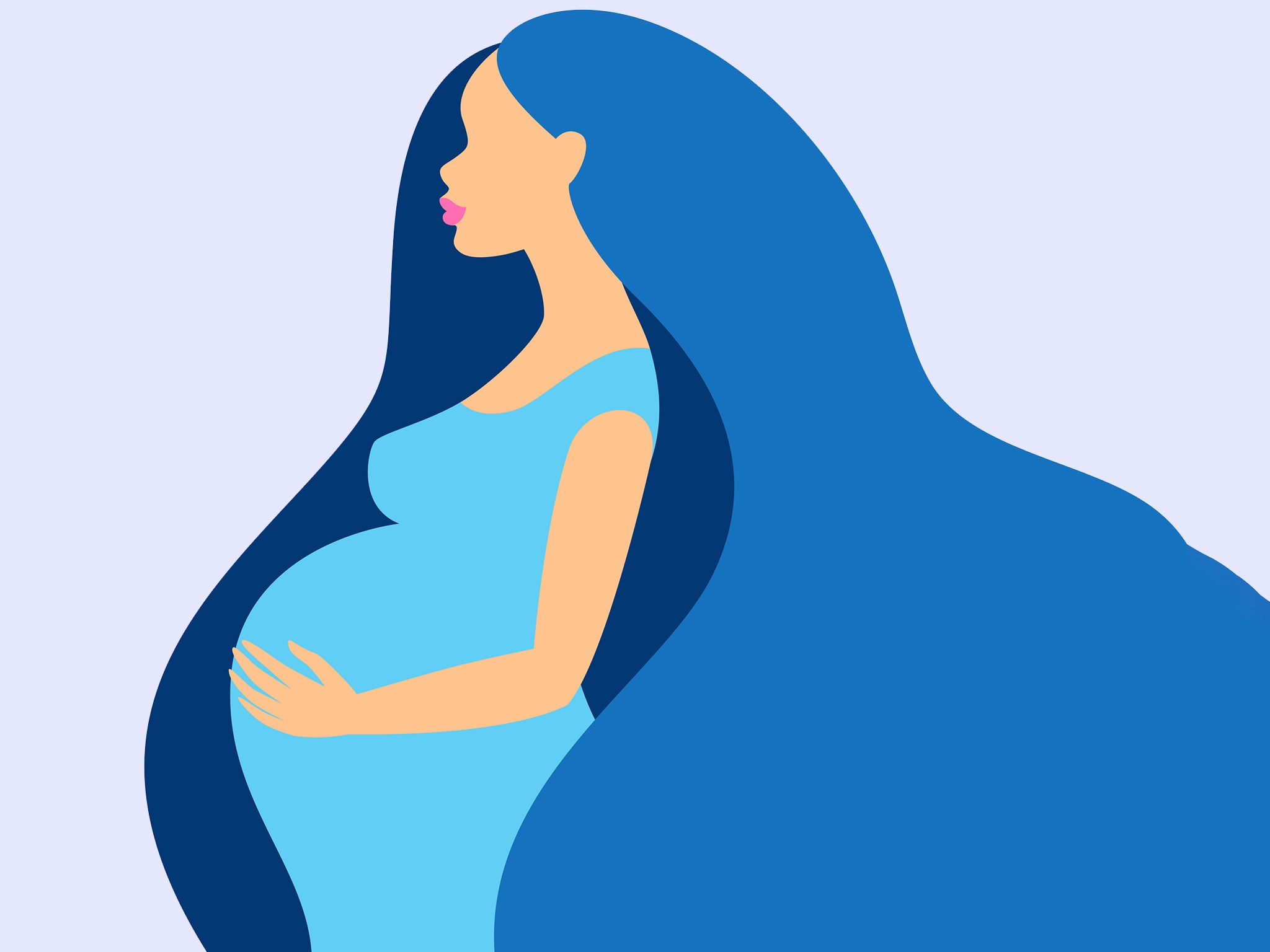
--
I went to work on a glossy, showbiz magazine, the type where girls swanned into the office in hot pants and sequinned crop tops, where you had to step over the contents of the fashion cupboard – a rail stuffed to bursting with “call ins” from the high street and high-end boutiques, to be worn at photoshoots and PR parties and the occasional celebrity wedding – to get to your desk, where you’d invariably be commissioned to write (weeks in advance, because issues went to press marketed for the month ahead) on “bikini bodies” or “the most shocking celebrity diets”.
I coordinated a photoshoot with one celebrity who had dealt with “yo-yo dieting”. She’d been everything from a size 8 to a size 20. and regularly played out her battles with body satisfaction in the gladiatorial arena of women’s magazines. This shoot, her people told me, was to demonstrate how much she’d increased in confidence of late – how “comfortable” she was in her own skin. She wanted to “open up” to thousands of readers about why she wasn’t going to worry about how she looked anymore, and had opted to do so by stripping off and allowing her perfectly normal curves to be displayed on the front cover. From there, she would be scrutinised and dissected from newsstands across the UK.
I was intrigued to try to get a handle on whether she felt she was choosing a life so excruciatingly public, or whether she’d fallen in to it by accident, and now couldn’t find her way out. It felt poignant to talk to her at a time when I, too, was being judged and scrutinised.
My body, now it was carrying a child, had ceased to be my own. Strangers touched me all the time: from old ladies in supermarkets gleefully seizing my bump with both hands, to the disquieting experience I had with someone who asked if he could feel my baby moving, when we were in a dark room together.
Despite the Botticelli-like figure the celebrity presented in the final photographs: her soft curls, her aquiline curves; our interview told a sadder story. Staying thin, she admitted, “felt like a full-time job”.
When I became fractured, I couldn’t piece together all the parts. I left bits of myself scattered all over the floor, like a broken terracotta pot. And I had no idea which glue to use to put myself back together
--
When I became a mother, I became part of a tribe, yet one in which I felt utterly and unalterably alone. I didn’t know it at the time – didn’t see the fine thread unravelling behind me like a trail of breadcrumbs in the woods, or the wolves in “new mum” clothing: the ones hiding so-called “modesty wraps” beneath red-hooded cloaks and linen-lined baskets. I failed to notice the pointed teeth of the health visitor who would tell me I was doing it wrong, that my baby was “starving”, who would bend me into impossible positions as she explained that newborns should crawl towards the breast; should wriggle and inch themselves upwards to suckle, sometimes straight after birth, so why wasn’t I trying harder, why wasn’t I listening, why wasn’t it working: why, why, why?
I lost my name. Became “mum” or “mummy” at hospital check-ups, at nursery and school gates. I wanted to exist, but couldn’t – not in the same way as before. And so, mourning. I wrote myself all over the pavement in chalk. And then I simply washed away.
It’s a strange thing, not to belong to your body. I’d gotten so used to being one, that when I became fractured, I couldn’t piece together all the parts. I left bits of myself scattered all over the floor, like a broken terracotta pot. And I had no idea which glue to use to put myself back together.
Looking for answers, I found myself writing. Words flowed out of me after midnight – I’d scribble them down in the “notes” section of my iPhone, then sift through the wreckage by daylight. Sometimes stanzas stayed, fully formed. More often, I’d edit and re-edit, get rid of most of what had begun, leaving just a kernel. But it was enough. I’d found something to cling to. When I got lost in the sea of motherhood, poetry was my lifebuoy.
I became a Sylvia Plath-type figure, haunting my hallways at 3am in a long, white nightgown. I’d lie awake for hours, obsessing over line breaks. In a frenzied period of around three months, between September and December, as my baby approached six months old, I wrote. And wrote, and wrote. And wrote. The first draft of a 70,000-word novel, the rudiments of an entire poetry collection, with a couple of short stories thrown in as light relief. It turns out I was inspired.
To have a child is to bear a great and terrible love. In many ways, motherhood forced me to change, not always in ways I wanted – for all the joy it brings. I also found writing – or writing found me. And just like the moment I became a parent, I am forever altered.
Victoria Richards’ debut poetry collection, You’ll Need An Umbrella For This, is available now from V.Press
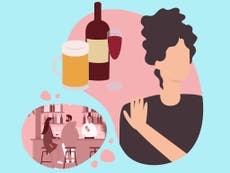


Join our commenting forum
Join thought-provoking conversations, follow other Independent readers and see their replies
Comments